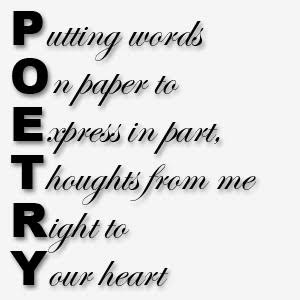preface to Lyrical Ballad is written by Wordsworth, Published in 1789. The Impact of French Revolution inspired Wordsworth and also other poets. Wordsworth argued that,
"Poetry should be written in the real language of common man, rather than in the lofty and elaborate dictions that were then considered "Poetic" "
"Poetry should be written in the real language of common man, rather than in the lofty and elaborate dictions that were then considered "Poetic" "
"Poetry should be written in the real language of common man, rather than in the lofty and elaborate dictions that were then considered "Poetic" "
"Poetry should be written in the real language of common man, rather than in the lofty and elaborate dictions that were then considered "Poetic" "
Q.1 What is the basic difference between the poetic creed of 'Classicism' and 'Romanticism'?
There are many differences between romanticism and classicism.
# In Classicism, Intellect wad considered to be the ruling guiding principle. For example, pope and dryden believed in intellect and theri poetry was an intellectual. On the other side, romanticism, for romantic poets imagination is a guiding source. For example Wordsworth and Coleridge creates their own imagination.
# In Classicism, they believe they should be restrained but romantic poets believe in liberty, freedom and poet is free to write.
# Classical poets relive on classical masters like Aristotle, Plato and socrates, and they followed them but romantic poets turn for inspiration not to the classical master but they believed in medieval poets and writers.
# Romantic poets represent city and urban life and they believe that Poetry is spontaneous powerful feeling but classical poets are objective they are not believed.
So we can find this differences between Classicism amd romanticism.
Q. 2 why does Wordsworth say 'what' is poet? Rather than who is poet?
In his Preface he said that, "a poet is a man speaking to man, endowed with more lively sensibility, more comprehensive and tenderness, great an knowledge of human nature, more comprehensive soul, man in the spirit of life, creative volition, passions and situations where he does not find them, who rejoice more". So we can say that according to Wordsworth, poet is who understand the feelings or emotions of the common man and who has a good knowledge of the human nature. Poets create something which is related with his/her imagination. The poet differs from other in degrees enthusiasm, and tenderness. So that Wordsworth says about 'what is poet' rather than 'who is poet'.
Q. 3 what is poetic diction? Which sort of poetic diction is suggested by Wordsworth in his Preface?
Poetic diction means choice of words or language for your poetry. Diction is a unique style for any poets for example many poets writers their poetry in a different style but Wordsworth wrote his poetry in a unique style. He used the language as really used by man. For example, "Michael" id famous poem written by Wordsworth. In this poem he talk about common farmer. So, Wordsworth offered his Lyrical Ballads in 1798 and offered that as an experiment. In his Preface he also mentions that, poets uses highly unnecessary ornamental language.
Q. 4 What is poetry?
According to Wordsworth, "poetry is the breath and filer of all knowledge, the impassioned expression that is in the countenance of all science". On the other side he says that "poetry is the instrument for the propagation of moral thoughts".
Q. 5 Discuss 'Daffodils - I wandered lonely as a cloud' with reference to Wordsworth's poetic creed.
Daffodils is the best poem written by Wordsworth. If we see the first stanza of the poem, we comes to know that the poem is in past tense and last stanza is written in present tense. In the first stanza, There is spontaneous overflow of the feeling. The last stanza suggests recollection of emotions in tranquility. In the poem he enjoys the nature and the beauty of nature. In this way the definition of poetry we find appropriate in Daffodils by Wordsworth.



Comments
Post a Comment